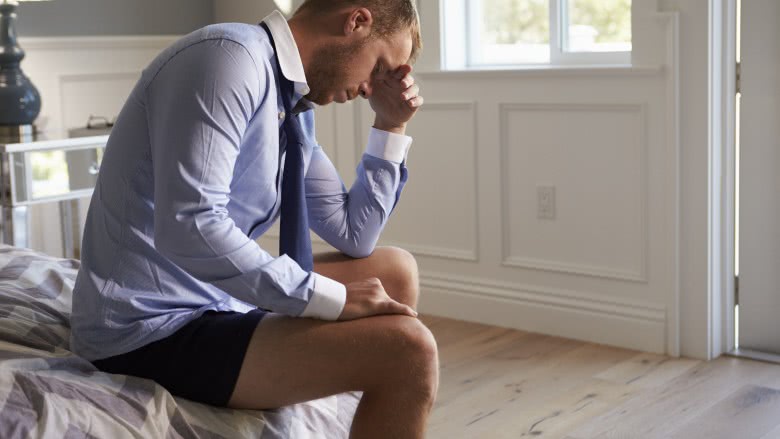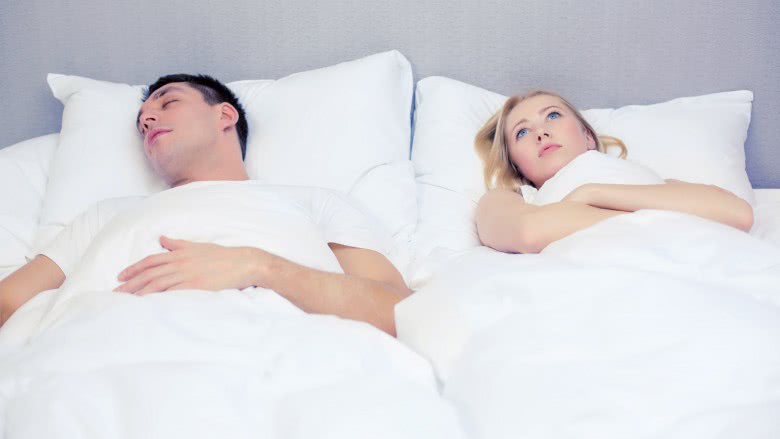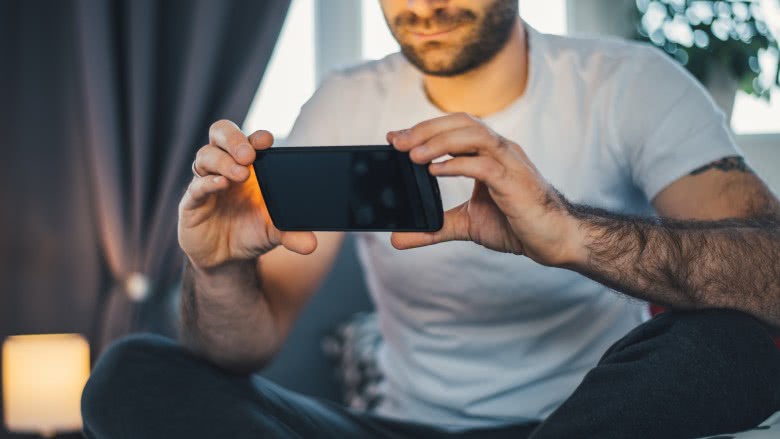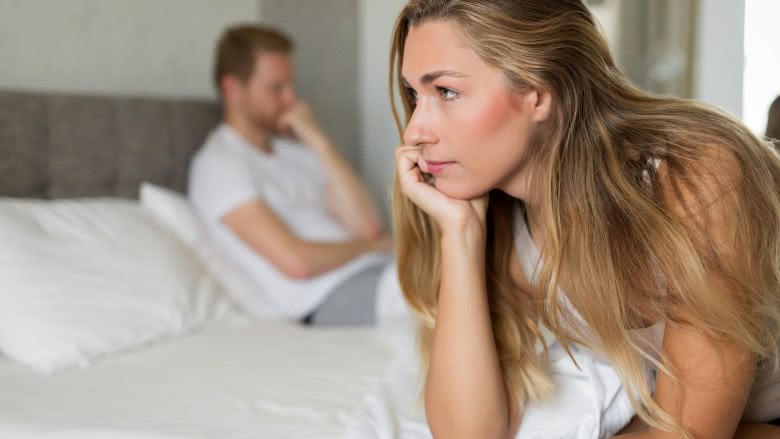Ways Your Significant Other Is Ruining Your Sleep
It's only natural that once you get into a relationship, you begin to share things. You share stories and secrets. You share space and belongings. You literally share 24/7 because even when it's time to get some shut eye, you're sharing that too.
In fact, millions of couples share a bed, which means their sleep habits come along with them. Someone who has slept alone most of their life may not be able to adjust to these sleep disturbances. Unfortunately, these issues are more common than you might think. Results of a British survey published by Keele University, showed that out of 2,000 men and women surveyed, 58 percent of these couples reported sleep problems at least once a week. Yikes. Here are the ways your S.O. is ruining your sleep.
Snoring
Why does it seems the one who snores is the one who always falls asleep first? Then you're stuck lying there with your eyes wide open because the symphony coming out of your partner's nose is anything but calming. The National Sleep Foundation says that snoring affects 90 million Americans, and 37 million on a day-to-day (or night-to-night) basis.
So, if you snore, get treatment. According to a study in the Mayo Clinic Proceedings, the partner of a snorer could get over an hour more sleep if their partner was able to control their snoring.
Different sleep schedules
The Nation Institute on Aging recommends that you keep a steady sleep cycle to assure you get the best sleep possible. But how can you do that when you and your partner have different schedules? These fluctuations in the times you and your partner go to bed can affect how you stay asleep.
For example, if your significant other works the graveyard shift, and you're in bed by 10 PM, and then he or she comes walking in at 4 AM to get ready for bed, chances are — unless you're a really heavy sleeper — they could interrupt your sleep. This can create an issue if you're someone who needs your eight hours, but it's also something that can be solved with the right communication. Laura Bird, WSJ's Personal Journal deputy editor, says, "Just the physical act of talking about the [sleeping] problem, is that one step in the right direction."
Tossing and turning
Did your partner have a dream they were running through the forest? Or maybe having a karate match with Jackie Chan? Did you know this because they were acting out everything in real time while they were sleeping? It's possible that your partner wasn't just having a strange dream.
According to the National Institute on Aging, periodic limb movement disorder can cause people to move their legs or arms every 20 to 40 seconds! The American Academy of Sleep Medicine says that it's common, but is only considered a disorder when it affects the person's sleep or daily life. The report also says that it affects the partner more than the person with the disorder. If you notice these things about yourself or your partner, maybe it's time to pay a visit to your doctor.
Sleep environment conditions
The National Institute on Aging and the National Sleep Foundation both recommend a variety of optimal bedroom conditions to provide a better sleep. If you're sharing the space, you're going to need to agree on the best conditions for both of you.
Consider your mattress, the room temperature, and lighting — just to name a few. Dark and cool rooms are going to be your best bet, according to both the NIA and NSF, but the mattress is up to you. Luckily, there are mattresses out there that will give you and your partner what you both need, even if you have different preferences. They might come with a heftier price tag, but could be a priceless investment toward your sleep.
Mental health and sleep
Believe it or not, your partner's stress levels, depression, and anxiety can not only severely affect their own sleep, but yours as well.
Depression can affect sleep differently at certain ages. UCLA's Sleep Disorder Center says that people 40 and below are more likely to have a hard time falling asleep if they experience depression, but those 40 and above will actually wake up in the middle of the night when they are depressed.
And it might just be worse for women.
A 2016 study in the Journal of Behavioral Medicine showed that the effect of a husband's mental health on their wives was greater than the reverse. So women get less sleep, stressing over their significant other's stresses.
Your significant other is a furry friend
According to Sleep.org, "more than half of dog owners" and just about the same number of cat owners encourage their pets to sleep in bed with them. Sleep.org explains that just because many people like to sleep with their cute companion, it doesn't mean it's a good idea. There are many things that your pet can do that can disrupt your sleep. For example, just waking up in the middle of the night to scratch. If you're a heavy sleeper and this doesn't affect you, maybe this will: animals can carry sicknesses that humans can contract. Not to mention if you have allergies, having your pet up close and personal in your sleeping space can cause you to have a reaction.
Sleep.org even suggests that you don't have your pet in your bedroom all together considering you don't know what they're bringing into your comfortable space. I know, but they're so cute and cuddly! If you're having a hard time with your sleep or even your health, this could be why.
Establishing cuddle time isn't easy
For some, sleep time is for sleeping and cuddle time is for cuddling. Some people can't do both. Your significant other may think you love being wrapped up tightly in their arms, but really you just can't stop thinking about how sore your neck is going to be in the morning. Or maybe combining both your body temps is just way too warm for you when you're already under a blanket.
Yes, studies have shown that sleeping with a partner is good for your health, but not when you can't actually fall asleep.
Social media in the bedroom
Buzz... Buzz...
Is that the sound of your significant other's phone going off? The light from their screen is shining in your eyes, keeping you awake until they decide to go to bed.
Sleep.org suggests to turn off your phones and electronics before you get into bed. The light emitted from a cell phone or tablet, even if you're not the one using it, can cause you to stay awake. Dr. Micheal J. Breus, PhD, aka "The Sleep Doctor," even recommends charging your phone in another room.
Is it time for separate beds?
Just because it's the "norm" to sleep in the same bed as your partner doesn't mean it's for everyone. If you're having a hard time getting through your day because of the lack of sleep the night before, it may just be a good idea to try separate beds — or even separate rooms.
The director of Ryerson's Sleep and Depression Laboratory, Dr. Colleen Carney, told CBC News that between 30 and 40 percent of couples sleep apart at night, and that number has only gone up over the years. If you've exhausted all of your other options — and you're actually exhausted — it could be worth a try. Your good night's sleep depends on it.









